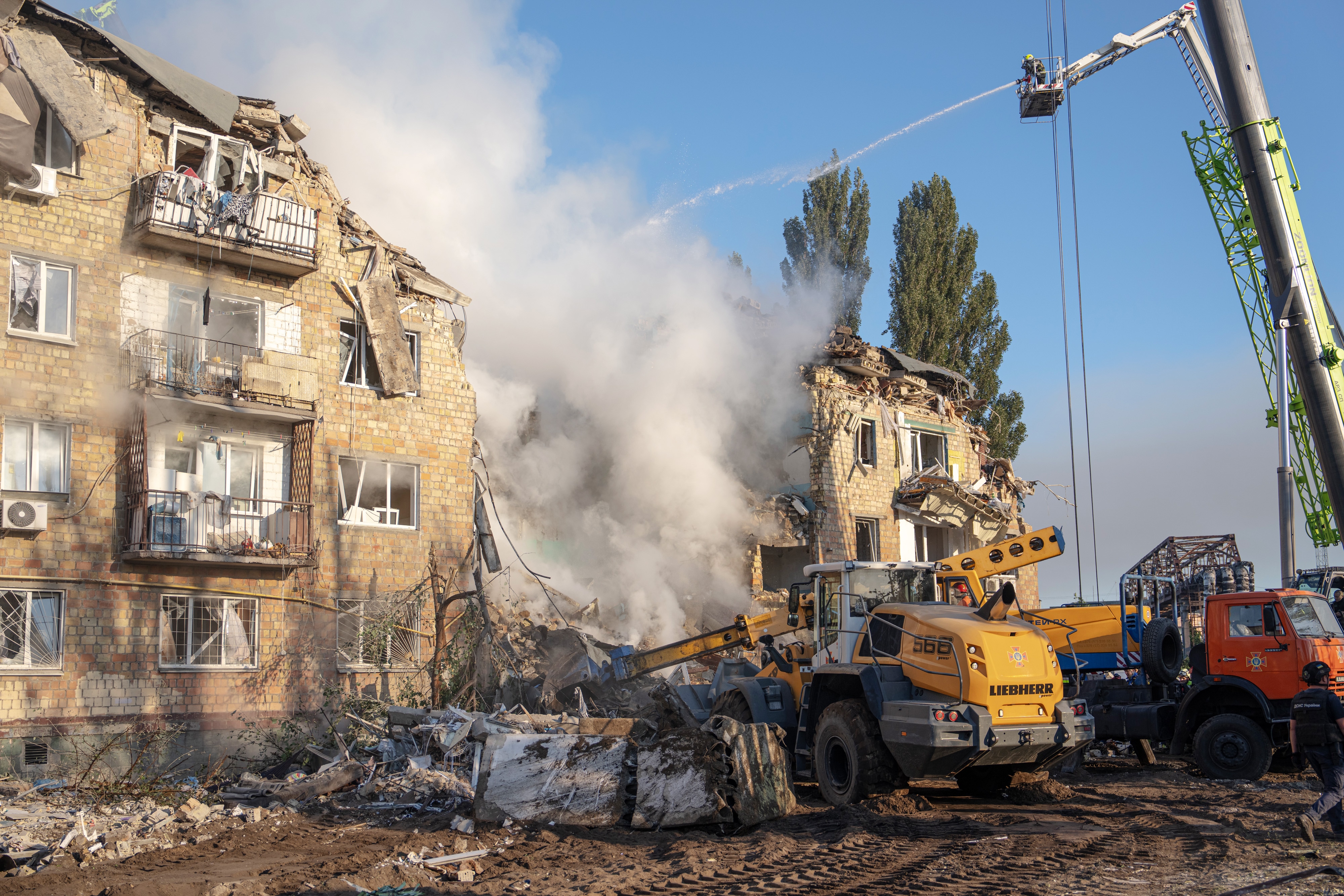
European leaders are increasingly concerned that Russia will mount a new offensive on Ukraine as they sit down with President Volodymyr Zelenskiy to discuss security guarantees for his country.
At their security council meeting in Toulon last week, German and French officials discussed the Russian troops massing outside Pokrovsk, a Ukrainian-held stronghold in the eastern Donetsk region, according to people familiar with the matter who asked not to be named.
Zelenskiy said on Friday that Russia had relocated 100,000 soldiers to the frontline outside the city, which the Kremlin's forces have tried to encircle and seize without success for more than a year.
Capturing Pokrovsk would open the way to a Russian assault on the much larger cities of Kramatorsk and Sloviansk as Moscow seeks control over the entire Donetsk region.
Growing concerns come as the gathering of the so-called coalition of the willing in the French capital will aim to finalize discussions on the European level about security guarantees for post-war Ukraine, people familiar with the plans said. The leaders will also speak to Donald Trump.
The Europeans will likely want to tease out specific commitments about the US contribution to those assurances and to push Washington to tighten sanctions against Russia as Putin shows no signs of wanting to meet with Zelenskiy any time soon, the people said.
The French want the gathering to convey a message that Europe has done its part to support Ukraine and it's up to the US president to deliver on his threat to increase pressure on the Kremlin. President Emmanuel Macron said Wednesday, standing alongside Zelenskiy in Paris, that Europe is ready to provide security guarantees to Kyiv.
US Special Envoy Steve Witkoff and Zelenskiy joined the meeting in person together with the Dutch, Danish, Belgian and Polish prime ministers. Finnish President Alexander Stubb, European Commission President Ursula von der Leyen and European Council President Antonio Costa were also present. Other leaders joined via video conference.
Despite Trump's recent drive to broker an end to Russia's full-scale invasion, including a meeting with Putin in Alaska last month, Moscow hasn't shown willingness to commit to a ceasefire. While the US president has threatened sanctions to put pressure on Russia, he has so far stopped short of imposing them.

Emergency service workers at the site a Russian air strike on a residential building in Kyiv on Aug. 28.
Meanwhile, Europeans have taken the lead in discussing potential security assurances to Ukraine. That could involve sending soldiers to Ukraine once hostilities end, a prospect which still divides many European allies and which Russia has said it cannot tolerate. Trump has ruled out deploying US troops but said his country may provide backstop in the form of air and intelligence support.
“Ukraine is going to have to agree with whatever the security architecture is,” US Ambassador to NATO Matthew G Whitaker said in an interview in Bled, Slovenia, on Tuesday. However, Russia will also “have to be comfortable,” he added.
Once Europe concludes its talks on the guarantees, leaders can collectively engage “even more intensely” with the US, said NATO Secretary General Mark Rutte on Wednesday. Getting clarity on that issue would be “extremely important” before any meetings involving Putin and Zelenskiy, he said.
Still, a senior European diplomat said the momentum seen early last month on diplomatic efforts has tapered, with negotiations stalling as Russia prepares to further attack Ukrainian territory.
Russian's grinding summer offensive campaign hasn't yet led to significant territorial gains for the Kremlin. Moscow's troops have advanced slowly, capturing 2,033 square kilometers (785 square miles) in May-August or 0.3% of Ukraine's total area.
Russia also has stepped up air attacks amid Trump's efforts to end the invasion. July became the deadliest month for civilians in Ukraine since May 2022 as 589 were killed and 1,152 wounded, according to the UN. The latest Russian attack on Kyiv on Aug. 28, killed at least 25 people, local authorities said.
In the absence of any sign that Russia plans to end its war, Zelenskiy and his foreign backers are working on bolstering the Ukrainian army — a drive which Chancellor Friedrich Merz described as “the most important security guarantee we can give.”
Germany will continue to train Ukrainian soldiers and offer to strengthen the country's air defense capabilities by 20% each year, a government official said.
Berlin also plans to support the development of cruise missiles, to be manufactured in Ukraine with German financial and technological support, and to provide equipment for four mechanized infantry brigades of 480 infantry vehicles a year, the official added.
Any questions about foreign troops in Ukraine can't be answered until after a ceasefire is reached, Merz said. He stressed that the task of strengthening Kyiv's military must continue throughout any peace negotiations with Russia.
“Ukraine must be able to defend itself in the long term,” said the German chancellor. “We want to help it do so, both now and in the future.”
Essential Business Intelligence, Continuous LIVE TV, Sharp Market Insights, Practical Personal Finance Advice and Latest Stories — On NDTV Profit.






















